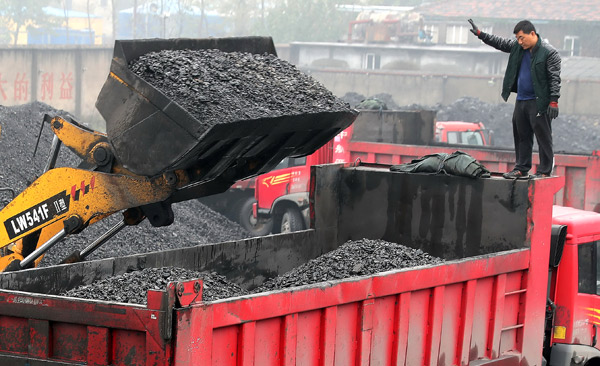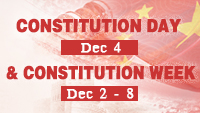Draft tax law for natural resources would codify a range of regulations
 |
| A heavy-duty lorry receives a load of coal at a yard in Huaibei, East China's Anhui province. [Photo provided to China Daily] |
A draft law to place taxes on the extraction of natural resources was submitted to the National People's Congress Standing Committee for its first review on Sunday.
The draft had been OK'd by the State Council, the Cabinet, Finance Minister Liu Kun said when he introduced it to the committee.
If enacted, the law would codify fees on certain natural resources. A series of regulations - but not a law - have generated revenue since December 1993. The proposed law clarifies the scope of resource taxes to be collected.
In addition, some reform measures are included, Liu said, adding that "resource taxes are important for saving energy and enhancing environmental protection".
The draft law identifies the taxpayers as entities and individuals engaged in extracting mineral resources or producing salt. An attachment to the draft listed 164 categories that would be subject to the tax.
Tax rates could be either fixed (including crude oil and natural gas) or float within a certain range (including coal and iron), depending on the resource category. For the latter, provincial-level governments can propose a range of tax rates.
If the draft is voted into law, Chinese and foreign companies, which jointly explore oil on land and at sea, will pay the resource tax.
Liu Shangxi, head of the Chinese Academy of Fiscal Sciences, said one of the principles behind levying resource taxes is to shift the existing tax regulations into parallel law "that will not add further tax burdens to enterprises".
Meanwhile, the law will encourage enterprises to improve technology to reduce environmental pollution and to promote green and high-quality production, Liu said.
China's reform of its resource tax regulations started in July 2016.
In the future, the draft states that taxes, including those levied on rare earth, tungsten and molybdenum, would be set according to the commodities' market price.
As part of the reform, some administrative fees are also reduced to ease burdens on companies. The central government has exempted mineral resources compensation fees, and banned all charges on resources by governments below the provincial level.
From 1994 to 2017, as Liu reported, China had collected a total of 932.5 billion yuan ($135.2 billion) in resource taxes, with an average annual growth rate of 15.9 percent. Last year, resource tax income stood at 135.3 billion yuan.



